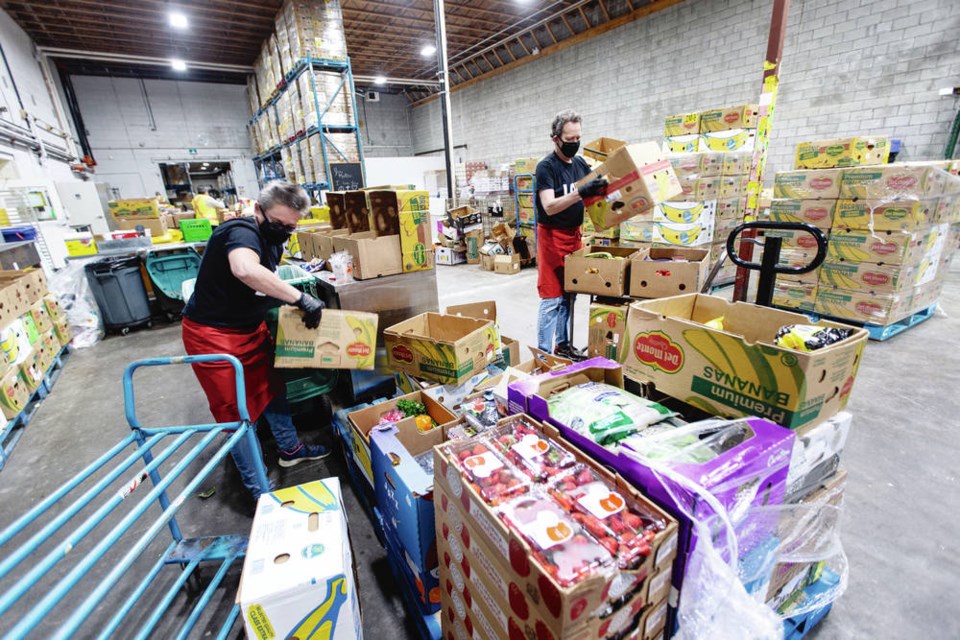The emergence of new agencies providing help to vulnerable people during the COVID-19 pandemic is putting additional pressure on Victoria’s Mustard Seed Street Church and other food banks across the country, officials say.
Food Banks Canada says that nearly one in every two food banks is providing support to an emergency program in addition to groups that usually receive food.
“A lot of people were very generous in their communities and wanted to help people,” said Kirstin Beardsley, chief network services officer. “It’s a fundamental thing that folks wanted to do. So food banks found themselves in a position to supply food beyond their usual set of obligations.”
That’s certainly true in Victoria, where the Mustard Seed’s food distribution centre supplies more than 75 agencies that, in turn, pass food on to school lunch programs, seniors housing, Indigenous communities and more.
“As well as supplying our food bank over on Queens Avenue with product, the need of agencies has grown immensely,” said Treska Watson, food security manager.
“We’ve had several new agencies join our food share network because of COVID-19. Several new non-profits were born and everyone in this sector is looking at ways to serve what we call under-served communities.”
So far, Watson said, the Mustard Seed, which receives support from the Times Colonist Christmas Fund, has been able to cope with the additional need because of people’s generosity as well as the fact that grocery stores have remained open and busy through the pandemic. The food distribution centre picks up 8,000 to 10,000 pounds of fresh products from grocery stores every day and delivers them to member agencies within 24 hours.
“So while our demand has increased, we’ve been able to meet that demand with all of the rescued food products,” she said. “It’s one of the silver linings of COVID, in that, at least we’re able to provide some nutritious food to folks that need it and we have not had to turn anyone away as of yet.”
Watson cautioned, however, that things can always change, depending on the shopping habits of consumers. “We’ve had quite a few lean weeks recently where we’re not getting as much from the stores,” she said. “But we’re always hopeful and Victoria has proven itself to be a very generous city with the Rapid Relief Fund and lots of other ways.
“So we’re hoping the generosity continues as the pandemic continues.”
As COVID-19 cases surge across the country, Beardsley of Food Banks Canada said it’s important to remember that food bank workers have been on the front lines since the start of the pandemic.
“They haven’t taken a break, a day off. They haven’t stopped providing an essential service,” she said.
“One of the worries I honestly do have is the burnout and mental well-being of these people who’ve shown up for their communities and the exhaustion they must feel. It’s something we’re monitoring and we’re providing supports.
“But just a note, if I may, to not forget your food bank as the holiday season approaches.”
HOW TO DONATE
The Times Colonist Christmas Fund, which supports the Mustard Seed Street Church and other organizations, is aiming to raise $700,000 this year. There are several ways to donate:
Go to timescolonist.com/donate. That takes you to the Canada Helps website, which is open 24 hours a day and provides an immediate tax receipt.
Mail a cheque, payable to the Times Colonist Christmas Fund Society, to the Times Colonist Christmas Fund, 201-655 Tyee Road, Victoria V9A 6X5.
Use your credit card by phoning 250-995-4438 between 9 a.m. and 1 p.m., Monday through Friday. Outside those hours, messages will be accepted.



